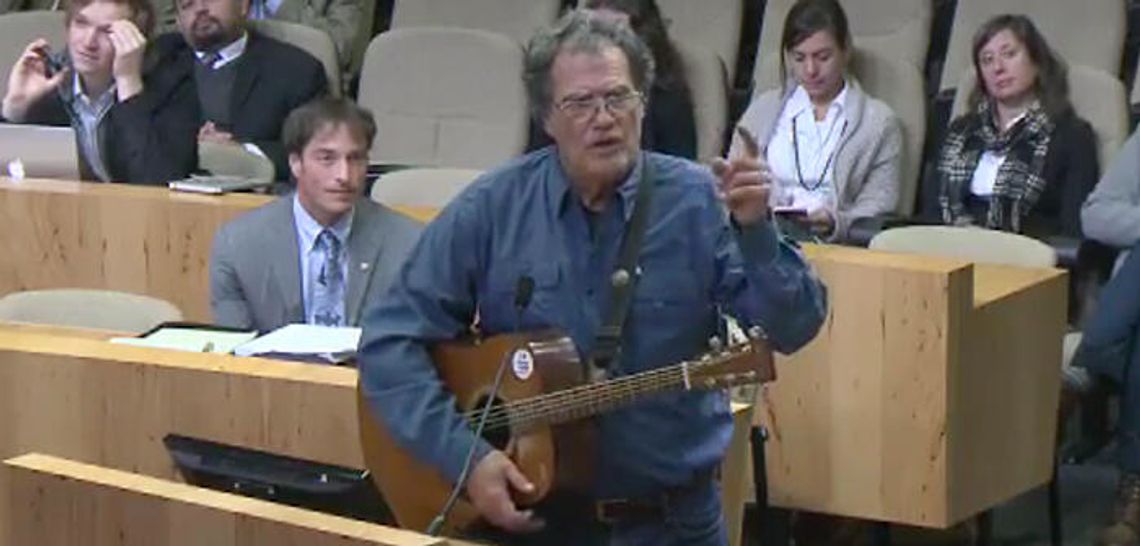Reservations over the rushed nature of a settlement agreement involving Dripping Springs’ proposed wastewater permit led Austin city leaders to express discontent Dec. 8.
While no action was formally taken, two Austin City Council members said they wouldn’t approve the proposed agreement with Dripping Springs if it came back up for a vote.
The agreement is part of Dripping Springs’ push for beneficial reuse associated with its wastewater expansion permit with the Texas Commission on Environmental Quality. The permit would allow the city a discharge point at Walnut Springs, which is a tributary of Onion Creek.
Over the past year, Dripping Springs city officials have compiled agreements with several area developers to use treated effluent from the proposed plant expansion for irrigation, to avoid discharge into the tributary. Additionally, Dripping Springs in November entered into an agreement with the Lower Colorado River Authority, which set parameters on when and how the city could discharge into Walnut Springs, if it was ever needed.
Per the agreement with Austin, Dripping Springs’ beneficial reuse infrastructure would have irrigated at least 25 acres of land that is currently under Dripping Springs’ control. Additionally, the city would also irrigate 174 acres of land controlled by others, while Dripping Springs would have an effluent storage system with a total capacity of 12 million gallons.
Dripping Springs also agreed to only discharge if irrigable land is frozen or saturated due to wet weather conditions, or if there are “unplanned or unforeseen” operational or mechanical issues.
In return, Austin, along with Alfredalbert, LLC, would not file a contested case against Dripping Springs’ for the life of the permit. Currently, the Barton Springs Edwards Aquifer Conservation District (BSEACD) and the Hays Trinity Groundwater Conservation District (HTGCD) have both filed contested cases against Dripping Springs.
Chris Harrington, a representative with Austin’s environmental staff, said the agreement was approached from a perspective to establish a “scientific threshold” of the impact to Onion Creek.
Harrington said while there could be some level of discharge associated with the agreement, it is not enough that it would cause a change in the trophic status of Onion Creek.
Bill Bunch, director of the Save our Springs Alliance (SOS), said during public comment the agreement set a “horrible precedent” and that the city should have involved public input, while not rushing the process.
Resident Lauren Ross claimed the city’s proposed settlement with Austin could allow “every single land application permit in the Barton Springs zone” to a discharge permit.
“This permit is the biggest threat we have ever seen to maintain Onion Creek and maintain the quality of Barton Springs,” Ross said. “This community has done lifetimes of work to protect and preserve it.”
Bill Oliver turned to song to express his opposition to the permit.
“If you feel like sending us your second hand pollution, we poo-poo that solution,” Oliver said.
Additionally, several Austin City Council members were concerned about the potential agreement. Austin District 3 council member Pio Renteria said he would not support the settlement based on his experience as a scuba diver in the 1970s of seeing waters in Lake Austin dirtied.
Mayor Pro Tem Kathy Tovo said she intended to vote against the settlement citing comments from the public.
Austin Mayor Steve Adler said more time was needed for city leaders to look at the agreement and for the public to properly vet it. Adler claimed Austin city leaders had less than a week to review the settlement before they were asked to make a decision on it.
Adler said the city’s goal was to protect Barton Springs and the waterways that flow into it.
“We are the trustees of Barton Springs,” Adler said. “If we screw this up, you can’t go back.”











